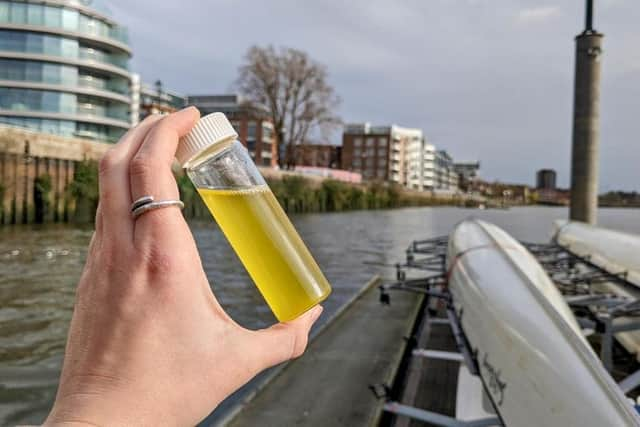Failing water companies must not be bailed out by hard pressed customers - Andy Brown
Water is one of the few industries to which much of this applies. We all have to use clean water, we all want our dirty water safely removed and we have absolutely no choice about where we buy that from. There is just one supplier in each area of the country. They are 100 per cent guaranteed to have our custom however bad the service.
So, it takes some doing to start up a water company with no inherited debts and mismanage it so horribly that it is taken to the verge of bankruptcy. Yet up and down the country water companies are saddled with mountains of debt to such an extent that Thames Water is struggling to finance itself and has £14,000,000,000 of debts. In 2022/23 Yorkshire Water spent £427m of your money just covering the interest on its borrowings.
Advertisement
Hide AdAdvertisement
Hide AdIf those debts had been taken on in order to invest in a much-improved service and to renew the Victorian sewage network that this country largely relies on, then it would perhaps have been understandable. That isn’t what seems to have happened.


The large and rapidly increasing water bills we have all been paying out haven’t gone to improve the quality of the service with anything like the necessary speed. Instead, a lot of the money has been frittered away in sky high dividend payments, much of it to foreign government investment funds.
The water companies borrowed the money. But they collectively failed to pump the much needed investment into their businesses that we were told would materialise when the companies were privatised.
The money was borrowed because it was cheap and easy to do so. Banks and foreign investors knew that there was a steady reliable income, and no government could allow the taps to be turned off. It was the easiest thing in the world for handsomely rewarded directors to provide their shareholders with high dividend payments by loading the company with debts.
Advertisement
Hide AdAdvertisement
Hide AdMeanwhile the service has gradually deteriorated to such a point that releases of sewage into our waterways has become routine whenever there is the slightest bit of rain. Despite the fact that the law states that this must only happen in exceptional weather conditions. There have even been hundreds of occasions in which raw sewage has spilled out onto Yorkshire roads. Thousands of new housing estates have been built which have resulted in new customers paying in additional revenues. Nowhere near enough additional main sewers and treatment centres have been constructed to cope with extra need.
Eventually the situation became so bad that those using our rivers and seas for recreation began to find themselves swimming in sewage or trying to fish in rivers with little water flowing and horrible unnatural scum on the surface. Wonderful natural lakes like Windemere have been subject to massive algal blooms because of the amount of waste products dispensed into them. Children paddling in the Yorkshire seas have come out of the water in traditional seaside resorts complaining about the smell.
It is now well over a year since this scandal hit the national headlines. Instead of getting better things are getting worse. In 2023 the number of sewage releases into Yorkshire rivers increased with over 500,000 hours of pollution being pumped into our environment. Classic Yorkshire rivers like the Aire, the Wharfe and the Ouse are amongst some of the most polluted in the country and Yorkshire Water was the second most frequent releaser of sewage in the country.
The companies that delivered this massive failure are now telling us that we must all pay higher bills to enable the environment to be cleaned up. That is one of the most cynical attempts to shift responsibility that any public relations department has ever dreamed up.
Advertisement
Hide AdAdvertisement
Hide AdFor once the main problem is not that our environment has become more unstable due to climate change. The main problem is that the model of private monopolies delivering a service we have to buy simply hasn’t worked.
The answer to this is not obvious. If water companies are brought back into public ownership it will cost £ billions to purchase debts and pay money to existing shareholders.
The better solution is for the water regulators to insist that bills can’t rise faster than inflation and require a reasonable level of investment relative to income. Those companies that can’t service their debts and deliver a public service need to be allowed to go bankrupt. The shareholders should not be compensated in any way. Debts should die with a moribund company not be passed on to the taxpayer.
The government should set up a series of new companies under public ownership to replace any water company that goes to the wall. I think it was Margaret Thatcher who said that it was a mistake to bail out failing enterprises. Any water companies which fail must not be helped out by hard pressed customers. Those shareholders who enjoyed the large dividends must now experience the consequences.
Andy Brown is the Green Party councillor for Aire Valley in North Yorkshire.
Comment Guidelines
National World encourages reader discussion on our stories. User feedback, insights and back-and-forth exchanges add a rich layer of context to reporting. Please review our Community Guidelines before commenting.